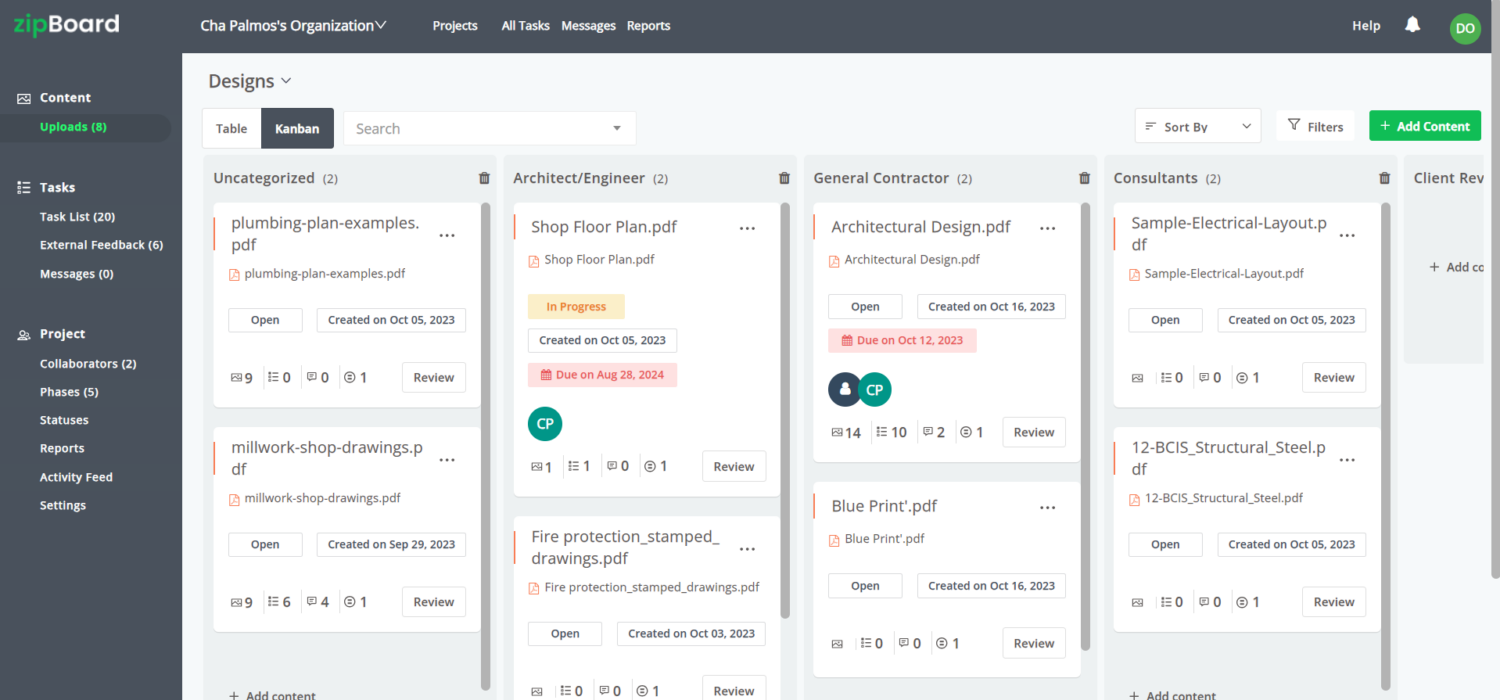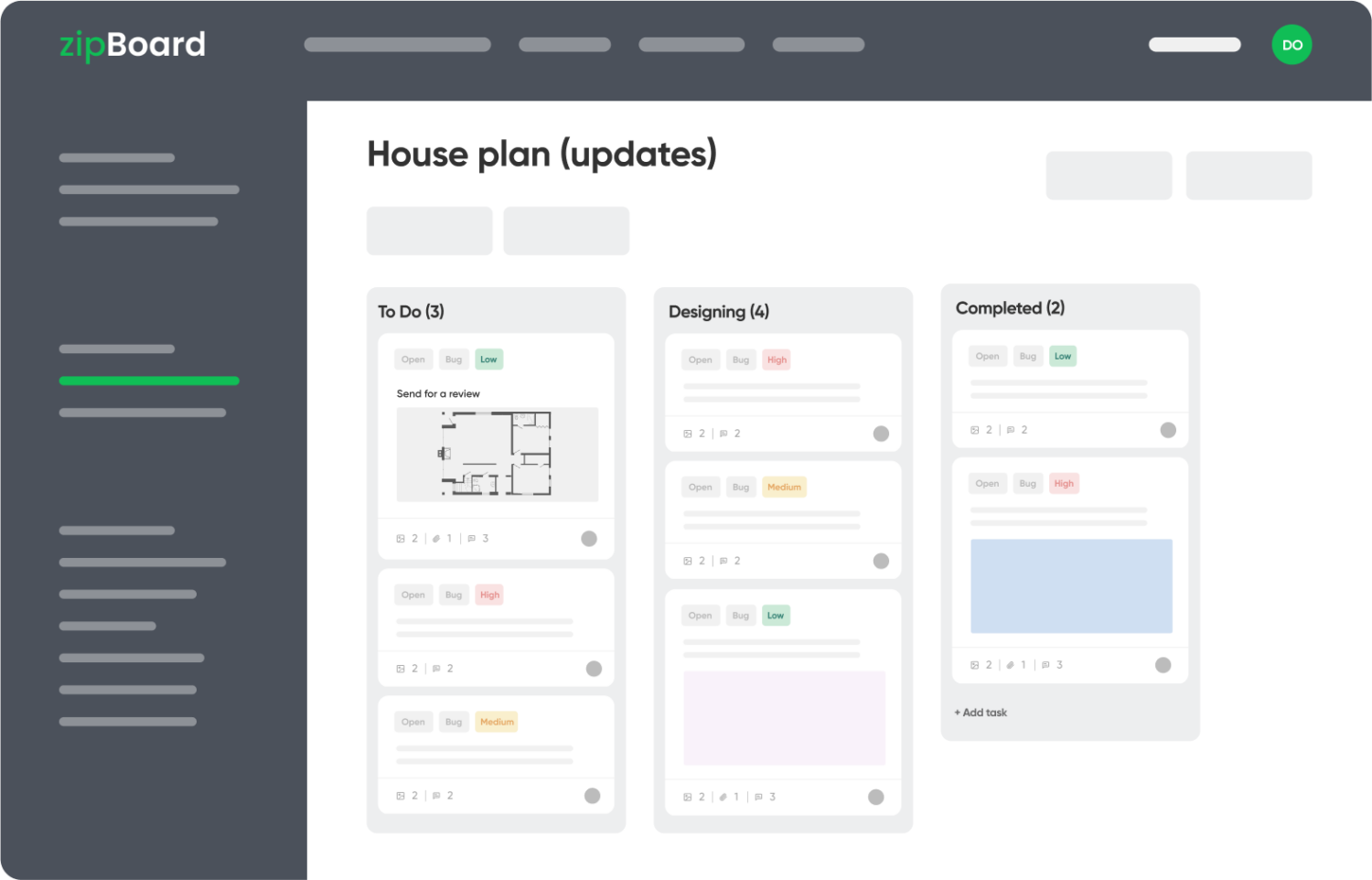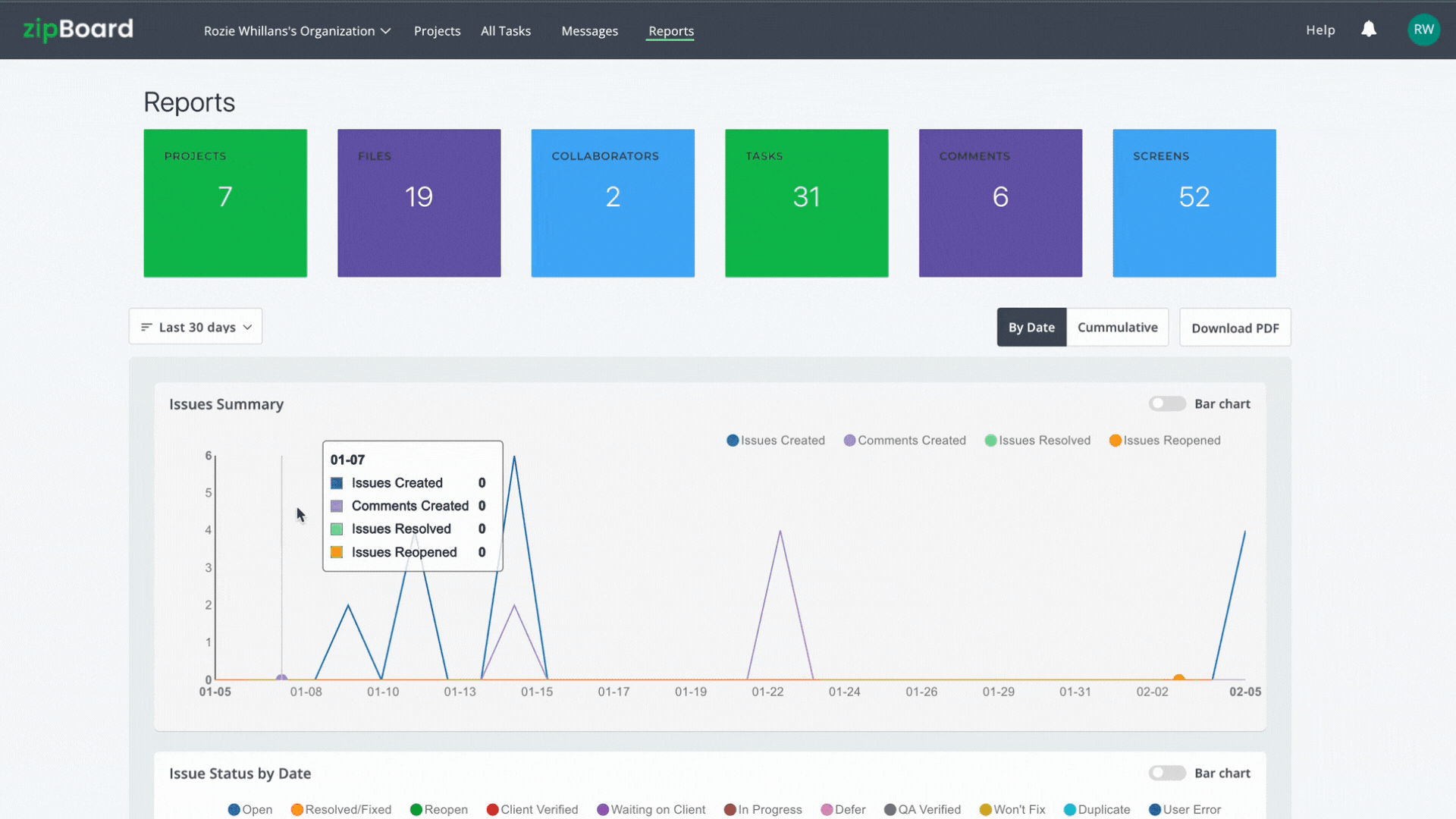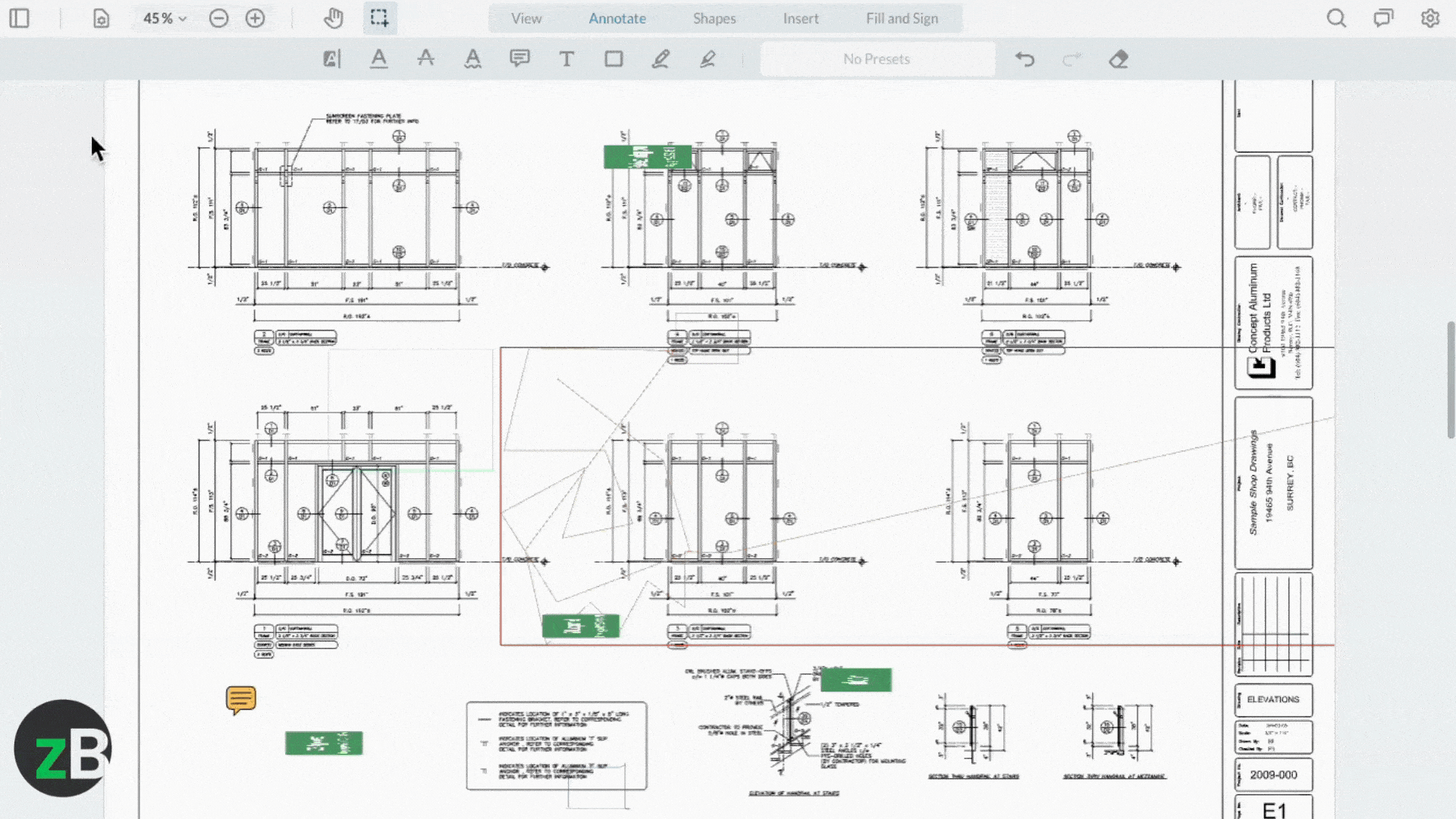Construction RFI Management: How Many is Too Many?
17 Sep
Table of Contents
ToggleRequest for Information (RFI) documents are indispensable in construction project management. However, the question remains: how many RFIs are too many? This question has been raised by structural engineers and other AEC professionals, highlighting the delicate balance between necessary communication and potential project delays.
In this article, we explore the importance of construction RFI management, the challenges of managing them, and best practices for maintaining efficiency in construction projects.
What is RFI in Construction Management?
RFIs serve as a formal means of communication between contractors, engineers, and architects. They help clarify ambiguities, address unforeseen issues, and ensure everyone is on the same page.
The number of RFIs can vary widely depending on factors such as project size, complexity, and team dynamics. And it will take effective construction RFI management to maintain project timelines and avoid costly delays.
7 Factors that Influence RFI Volume
You might find yourself asking, just like the structural engineer on Reddit, “How many RFIs are too many?”
The reality is, there’s no straightforward answer to this question. The volume of RFIs you encounter during a construction project can be influenced by numerous factors, including but not limited to:
- Project Complexity and Size: Larger and more complex projects typically generate more RFIs due to the increased number of details and potential issues that need clarification.
- Design Completeness and Clarity: Incomplete or unclear designs can lead to a higher volume of RFIs as contractors seek to understand the project requirements fully.
- Communication Gaps Between Teams: Poor communication between project stakeholders can result in misunderstandings and a higher number of RFIs.
- Contractor Experience Level: Less experienced contractors may submit more RFIs as they seek additional guidance and clarification.
- Risk Management Strategies: Projects with robust construction risk management strategies may see fewer RFIs as potential issues are anticipated and addressed proactively.
- Contractual Terms: The terms of the contract can influence the number of RFIs, particularly if the contract requires detailed documentation and approvals.
- Construction Phase: Different phases of construction may see varying volumes of RFIs, with some phases (like design, pre-construction, and construction) naturally generating more questions and clarifications.
Additionally, analyzing historical data from construction projects can help identify average RFI frequencies. One industry professional on Reddit suggested a rough guideline of 10 RFIs per million dollars in contract value based on his analysis of past projects. While this isn’t a hard rule, it provides a useful benchmark for your teams to consider.
The Impact of Excessive RFIs
The reason many architects and engineers are concerned about high volumes of RFIs is the negative impact these excessive RFIs can have on projects. Some of these include:
- Delays in Project Timelines: Each RFI requires time to process, review, and respond to. A high volume of RFIs can lead to significant delays, pushing back project milestones and completion dates.
- Increased Costs Due to Rework or Changes: Frequent RFIs may indicate issues with the initial design or planning, leading to costly rework or changes that can inflate the project budget.
- Strained Relationships Between Project Stakeholders: A large number of RFIs can create tension between contractors, engineers, and architects, potentially leading to conflicts and a breakdown in collaboration.
- Reduced Productivity and Morale: The administrative burden of managing numerous RFIs can reduce overall productivity and lower team morale, as team members may feel overwhelmed by the constant need for clarification.
- Potential Legal Disputes: Excessive construction RFIs can lead to disagreements over contract terms and project scope, increasing the risk of legal disputes and claims.
10 Effective Strategies and Best Practices for Construction RFI Management
Managing the volume of RFIs effectively is crucial for maintaining project timelines and ensuring smooth communication. Here are some practical tips and techniques for reducing RFI frequency and improving their quality:
- Create Clear and Detailed Design Documentation: Provide comprehensive and precise design documents to help minimize ambiguities and reduce the need for RFIs. For instance, if the design documents for an office building include detailed specifications for materials and construction methods, contractors are less likely to submit RFIs seeking clarification on these aspects.
- Establish Effective Communication Channels: Setting up a dedicated communication platform like Microsoft Teams to facilitate communication between all project stakeholders helps address issues promptly and reduces misunderstandings.
- Organize Pre-Construction Planning and Meetings: Holding a pre-construction meeting to review the project plans and identify potential issues can help address concerns early. For instance, discussing the installation sequence of HVAC systems can prevent future RFIs.
- Embark on Regular Site Visits and Inspections: Frequent site visits and inspections by project managers and engineers can help catch and resolve issues such as misaligned structural elements, before they escalate into RFIs.
- Ensure Collaborative Problem-Solving: Encourage the design team and contractors to work together to solve problems, like discrepancies in the plumbing layout, to ensure a quicker resolution and reduce the need for formal RFIs.
- Leverage Technology: Using RFI management software like zipBoard can streamline the process by providing a centralized platform for submitting, tracking, and resolving RFIs, improving overall project management.
- Enhance Communication Between Team Members: Promoting open and direct communication among team members, such as through daily stand-up meetings, can help resolve minor issues quickly without the need for formal RFIs.
- Use Collaboration Tools to Centralize Information: Centralize project information using PDF markup and collaboration tools like zipBoard to ensure that all stakeholders have access to the latest documents and updates.
- Encourage Direct Conversations to Resolve Simple Issues: Sometimes, a quick conversation via email or a call can resolve an issue more efficiently than a formal RFI.
- Establish Guidelines and Protocols for Submitting RFIs: Set clear guidelines for when and how to submit RFIs to help manage RFI volumes and ensure they are used appropriately.
The Balancing Act: Risk Management and Efficiency
RFIs serve as a crucial risk management tool for contractors. They help clarify ambiguities and document important decisions. However, striking a balance between thorough documentation and efficient project progression is key.
Hence, proactive construction RFI management can lead to more efficient project execution and better outcomes for all stakeholders.
Consider Quality Over Quantity
The consensus among AEC professionals in this Reddit discussion is that the quality of RFIs matters more than the quantity. If each RFI has merit and contributes to the project’s success, a high number isn’t necessarily problematic.
However, an excessive number of low-quality RFIs can indicate underlying issues that need addressing.
Streamline Construction RFI Management with zipBoard
Document management and collaboration software like zipBoard offer robust features that can significantly improve RFI management by:
- Centralizing Communication: All project-related communication, including emails, design documents, and feedback, is centralized in one platform. This ensures that everyone has access to the latest information, such as updated blueprints, specifications, and schedules, reducing the risk of miscommunication.

- Tracking RFI Status and Responses: zipBoard allows you to easily track the status of RFIs and their responses. For example, you can see which RFIs are pending, in review, or resolved, and who is responsible for each action item. This ensures that no RFI falls through the cracks and that all queries are addressed promptly.

- Facilitating Real-Time Collaboration: zipBoard enables your team members to collaborate on documents efficiently in real-time. For instance, architects, engineers, and contractors can simultaneously review and markup blueprints and design documents, discuss changes, and resolve issues quickly, all within the platform.
- Providing Visual Context for Design-Related Queries: The PDF markup and annotation tools in zipBoard help provide context for design-related queries. Team members can highlight specific areas of a blueprint or design document, add comments, and attach photos or sketches, making it easier to understand and address issues.
- Generating Automated Reports for Process Improvement: zipBoard can generate automated reports that analyze RFI trends and identify areas for improvement. For example, you can see which RFIs are in progress and those that have been addressed, among others. These insights help streamline the RFI process over time and improve overall project efficiency.

- Integrating with Existing Tools: zipBoard integrates seamlessly with your existing workflows and tools like Microsoft Outlook and Teams. These integrations allow you to convert emails to zipBoard tasks directly from Outlook and also manage RFIs from zipBoard, right from a frame in Microsoft Teams.
Additionally, the platform provides API integrations that allow you to connect zipBoard with your cloud storage or Document Management Systems (DMS). This means you don’t have to manually move documents, saving time and reducing the risk of construction document errors.
Learn more: Streamline Your AEC Workflows with zipBoard Integrations and APIs
Ready to Optimize Construction RFI Management?
Start your free trial or book a demo today so that we can create a tailored solution for you.
Book DemoStart Free TrialRecent Posts
- User-Friendly E-Learning Review Tools: Trends for Teams in 2026 February 20, 2026
- Your Digital Asset Review Workflow Is Broken (And How to Fix It) February 3, 2026
- Best Practices for Efficient Document Reviews and Collaboration December 18, 2025
- MEP Document Management: How to Streamline Reviews & Avoid Rework October 3, 2025
- What Is Online Proofing Software? And Why Content Review Breaks Without It July 11, 2025
©️ Copyright 2025 zipBoard Tech. All rights reserved.



